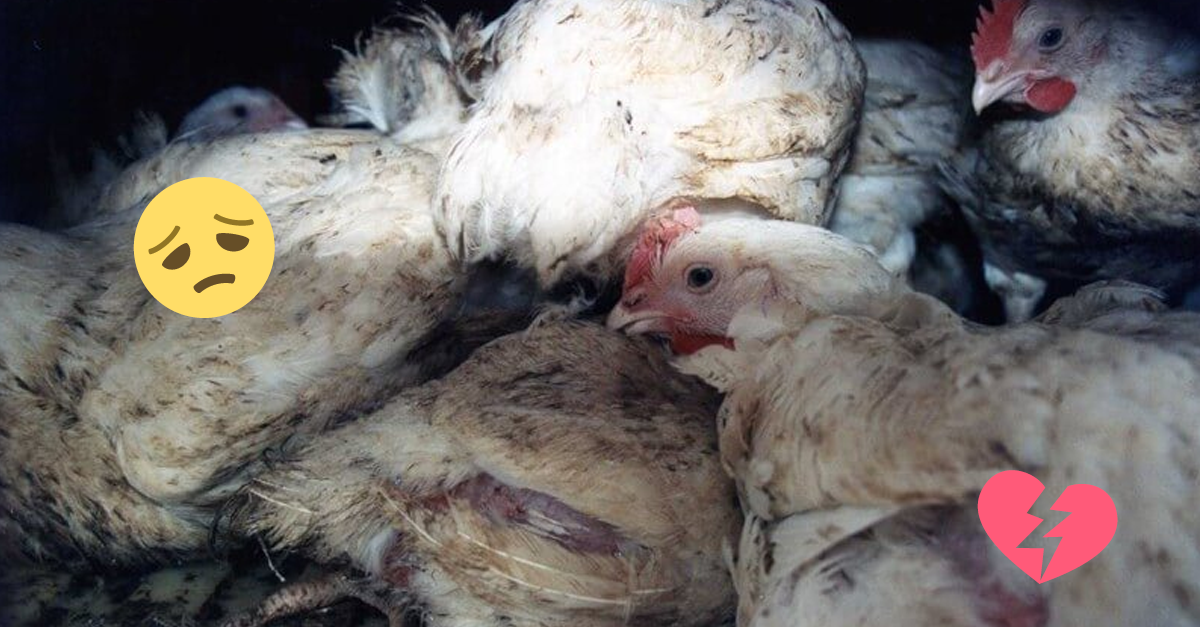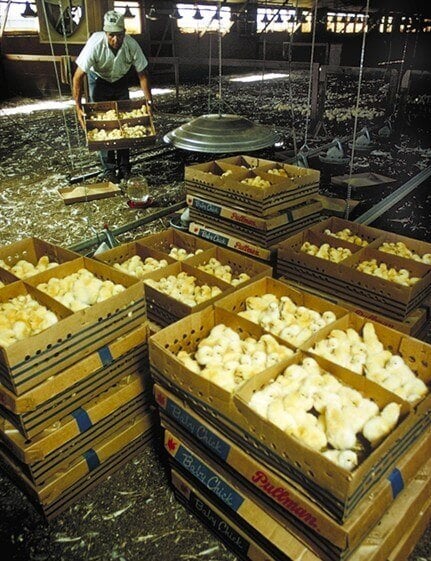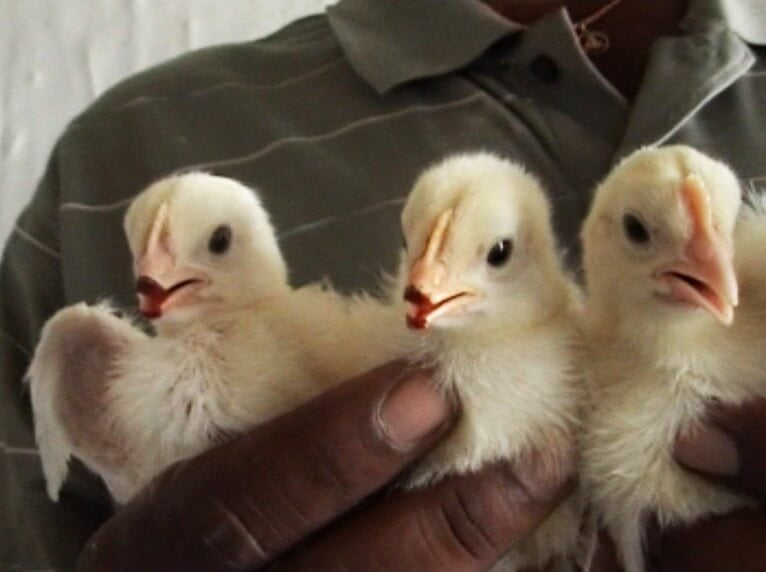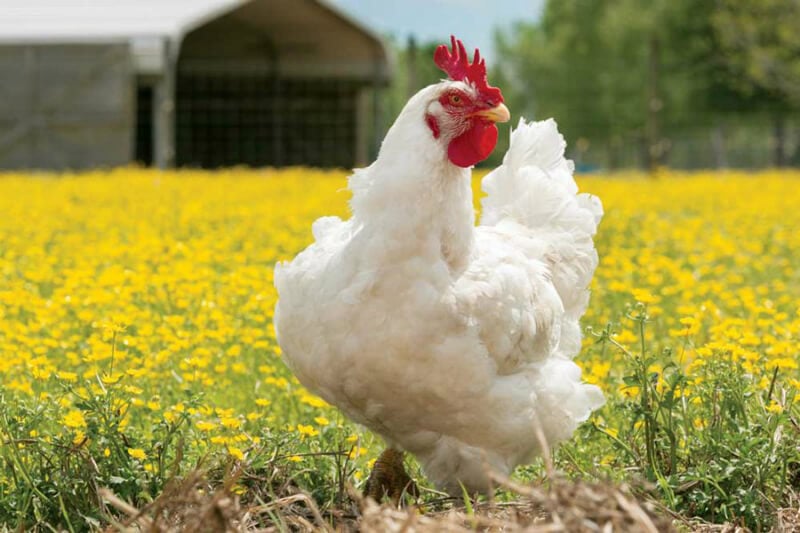What Happens to Chickens Used for Food?
Did you know that chickens are curious, loving animals who are just as smart as cats, dogs, and even some primates? They are very social and like to spend their days together—scratching for food, taking dust baths, roosting in trees, and lying in the sun. Mother chickens talk to their babies before they even hatch!
Chicken Suffer When They’re Used for Eggs
Most chickens used for eggs are kept in very small cages. Several birds are crammed into one cage, giving each of them as little space as the size of a piece of paper. That would be like spending your entire life standing shoulder to shoulder with your whole family. If you can’t even take a 10-minute car ride without fighting with your brother or sister, imagine how awful that would be!

Because only female chickens can produce eggs, male chicks are worthless to the egg industry. Every year, millions of them are either tossed into trash bags to suffocate or ground up alive. The hens are eventually killed, too, once they get a little older and start laying fewer eggs.

What Happens to Chickens Used for Meat Will Make You Sad
Most chickens raised for their flesh are crammed into giant sheds by the thousands. They’re given drugs that make them grow so large, so quickly that their legs often give out under the weight of their own bodies, leaving the birds crippled and in pain.
To keep the birds from pulling out their feathers or hurting themselves and each other because of these stressful conditions, workers “debeak” them when they’re just babies. That means they use a hot blade to sear off the tips of the birds’ beaks—without giving them any pain relief.

When the chickens are just 7 weeks old, they’re loaded onto trucks and sent to the slaughterhouse, where they’re killed for meat.
Here’s What You Can Do to Help Chickens Used for Food!
If you want to help chickens used for food, please don’t eat them. Grocery stores carry lots of delish vegan chicken options, from meat-free nuggets to crispy chicken-free patties to mock-chicken salad.
Get more information on helping chickens:



Under 13? Ask your parents bee-fore you continue!